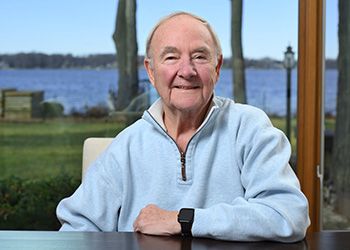Could video games promote health?

Robert Wood Johnson Foundation funds MSU Research
Two MSU kinesiology researchers are helping to explore the hidden potential of video games in promoting physical fitness after receiving grants from Health Games Research, an initiative supported with $8.25 million from the Robert Wood Johnson Foundation’s Pioneer Portfolio.
As the nation’s largest philanthropy devoted exclusively to improving the health and health care of all Americans, the foundation established its Pioneer Portfolio to support innovative projects that may trigger important breakthroughs, in this instance by strengthening the evidence base in the emerging field of interactive media designed for health promotion. Often considered a contributor to the national woes of obesity and inactivity, video games might actually be a powerful new motivator for exercise according to some researchers. Wei Peng and Deborah Feltz of the MSU Department of Kinesiology are heading research teams that received grants of $284,000 and $150,000, respectively, making MSU the only institution to receive two of the grants.
Health Games Research, headquartered at the University of California, Santa Barbara, is working to provide cutting-edge strategies that game designers can use to promote health, according to Director Barbara Lieberman, a leading expert on the research and design of new media.
“Digital games are interactive and experiential, and so they can engage people in powerful ways to enhance learning and health behavior change, especially when they are designed on the basis of well-researched strategies,” said Lieberman.
Using overweight and inactive college students as study participants, Peng’s team is investigating the effects of a 3D fantasy role-playing game called Mount Olympus that requires players to move their bodies in order to control a character’s movements. The players’ health outcomes will be compared to those of others who use a motivational Web site designed specifically to promote and support physical activity. The study examines the extent to which each media activity meets an individual’s needs for competence, autonomy, and social relatedness.
“Our Mount Olympus game will be designed with strong theoretical foundation and play testing,” Peng said. “We expect that the game can engage the players in a fun way and the stealth exercise can become part of their routines.”
Based on evidence that people work harder with a cohort than on their own, Feltz’s team is pairing college students with a virtual workout partner to study the impact on exercise trends. Interestingly, live exercise partners are not always the most helpful. The researchers are identifying what characteristics in virtual partners motivate individuals to exercise harder, for longer periods, or more frequently.
“Physical inactivity in the United States is a big problem, and problems with motivation are a key hurdle,” Fetz said. “We want to find the optimal motivating principles to help people improve physical fitness, and then build into digital games the best workout buddy possible.”
For more information on projects in the Robert Wood Johnson Foundation’s Pioneer Portfolio, visit www.rwjf.org/pioneer.




